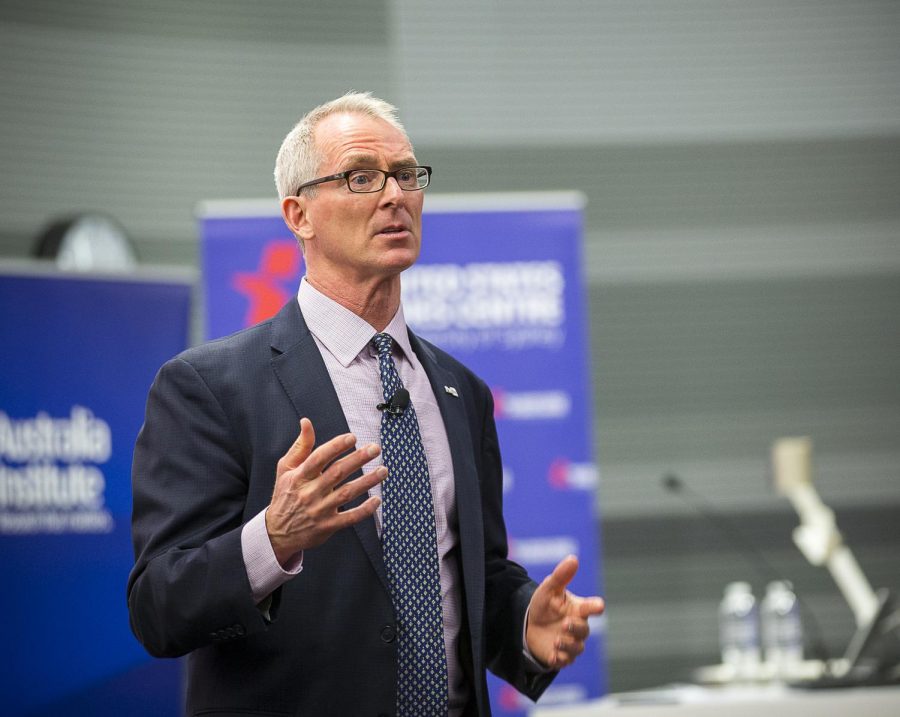Congressmen propose climate solutions
U.S. politician discusses idea for bipartisan tax policy
U.S. politician Bob Inglis says approaching climate solutions using a language of conservatism is a way to have conservatives be in favor of these policies.
November 15, 2019
A pair of former U.S. congressmen agreed there is a policy solution to fight climate change that is palatable for both progressives and conservatives when the former members of the science committee spoke at Bryan Hall on Thursday.
Bob Inglis is a U.S. politician who was the U.S. Representative for South Carolina’s 4th congressional district from 1993 to 1999 and 2005 to 2011. He said conservatives who are concerned with climate change will be a crucial demographic needed to pass climate-mitigating policy.
Conservatives can be won over to the idea of climate policy if they are approached in the language of conservatism, he said. Conservatives value freedom and prosperity through free enterprise and policies that can be viewed as impeding on that will not be favorable.
Inglis suggested a solution he said would be both an effective way to lower carbon-dioxide emissions and be accepted by conservatives. He said a revenue-neutral border-adjustable tax on carbon-emissions would economically create an incentive for clean energy without increasing net tax revenue.
This policy would make manufacturers and consumers pay a fee based on the carbon emissions created by the manufacturing and distribution of the product, he said. The revenue generated would replace other taxes and in theory not force people to pay more than they do already.
Brian Baird, former Democratic U.S. Representative for Washington’s 3rd congressional district, serving from 1999 to 2011, said a carbon-tax such as this could fight climate change while still allowing for economic growth.
Inglis said a tax policy such as this would reveal the hidden cost of carbon-dioxide emissions on society as a whole.
He said countries like China that import goods into the United States would also pay the fee for carbon emissions in their industries. They would likely be forced to implement a similar tax of their own to remain competitive. Inglis said this could cause a chain reaction of countries having to implement carbon-emission taxes.
Inglis said the nuances of this policy would prevent manufacturers from moving their production to different states and countries as the imported goods they produce will still be taxed.
“Everyone around the world would see the true cost of energy,” Inglis said. “This will push people towards new forms of clean energy.”










